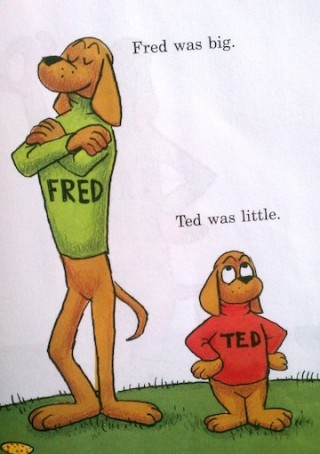November 22, 2013
Is it the year of short stories or 900 page novels?
by Kirsten Reach
 This year was a year of extremes: 2013 yielded unprecedented sales numbers for George Saunders‘s story collection and an unfathomable advance for a 900 page debut by Garth Risk Hallberg.
This year was a year of extremes: 2013 yielded unprecedented sales numbers for George Saunders‘s story collection and an unfathomable advance for a 900 page debut by Garth Risk Hallberg.
In February, we wrote about Leslie Kaufman‘s article in the New York Times, “A Good Fit for Today’s Little Screens,” which declared that short stories were on the rise. Unfortunately, no sales numbers were cited in the article: a few upcoming titles were listed by the likes of bestselling authors like Tom Perrotta, the existence of Kindle Singles was mentioned, and the article ended with a somewhat baffling conclusion that a new market had emerged because small screens are a practical “fit” for short works.
In her response for Salon, “Sorry, the short story boom is bogus,” Laura Miller wrote, “Just because publishers are, in Kaufman’s words, ‘sensing a market opportunity’ does not mean that a new market — let alone a booming one — actually exists.” Now that it’s the end of the year, we can admit the New York Times might have been right after all, but for the wrong reasons.
Cell phones have nothing to do with it, but prizes can sell books, and there have been a fair number of recent claims that this is the “year of the short story” after awards flittered down into the hands of Saunders, Lynn Coady, and Alice Munro. The Tenth of December, the first that sparked articles on the short story “trend,” has sold nearly 100,000 copies to date on Bookscan. This year also brought healthy sales for new collections from Jess Walter and Karen Russell.
Perhaps it makes sense that as soon as a novel like Eleanor Catton’s The Luminaries, at 848 pages, wins the Booker, or Hallberg’s City on Fire, a 900 page submission, is acquired for $2 million, people will say the opposite: this is the year for the door-stopper! But it’s still 2013, and so our current year is stuck in between these two extremes.
Richard Lea says he blames Proust (and Aristotle) in The Guardian for the appeal of a long novel. And Miller is back on this beat, writing in Salon, “The fact is: Long novels have never, ever been out of favor with readers. You can’t make a comeback if you don’t go away.”
She says there’s something wonderful about gluttonous reading, and compares a story to a ride on a sled:
The problem with a short story is that even if the author does manage to seduce you into believing in her fictional mirage, it’s over almost as soon as you take a seat on the sled. A long novel promises an extended tour, and the ratio of ramp-up to glide is much lower. Of course, most novels can’t get you to the crest of the hill in the first place; you climb and climb and it never stops feeling like work, until you finally turn around and trudge home. Plenty of long novels have this problem, and when they fail, there is nothing worse….
Even the most conscientious civilian reader feels entitled to ditch a long novel without a twinge of guilt; no one can expect you to get through 700 pages of tedium just to say you finished it. True, when a long novel is bad, it is usually horrid, but when it’s good, when that proffered tray of delicious narrative revelations seems as vast as a long rainy weekend with nothing in the appointment book, then it is very, very good indeed, and you can have as much as you want.
In conclusion… if the book’s good, you like it to be long, and if it’s good, you like it to be short? There’s no pleasing you people.
Kirsten Reach is an editor at Melville House.